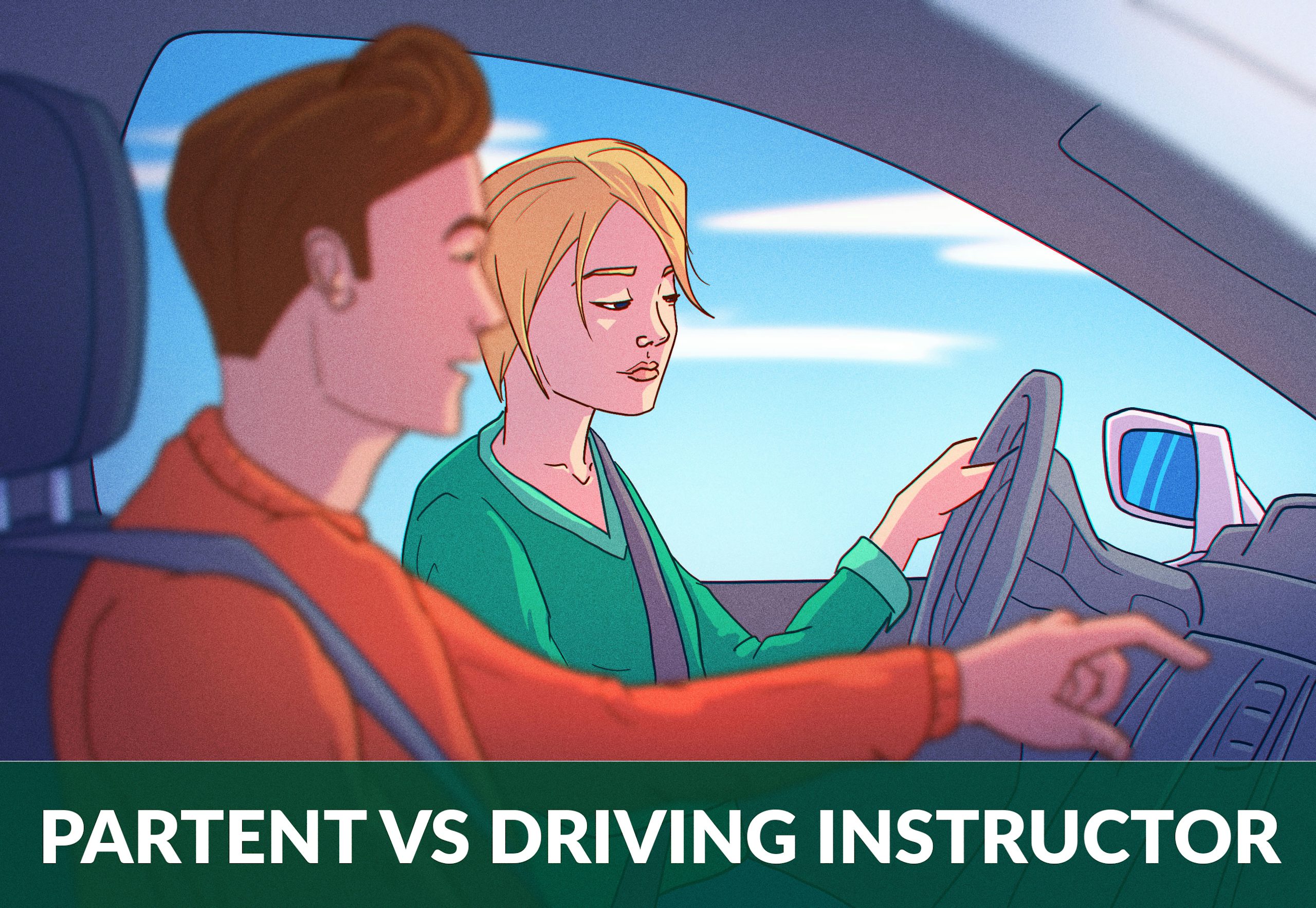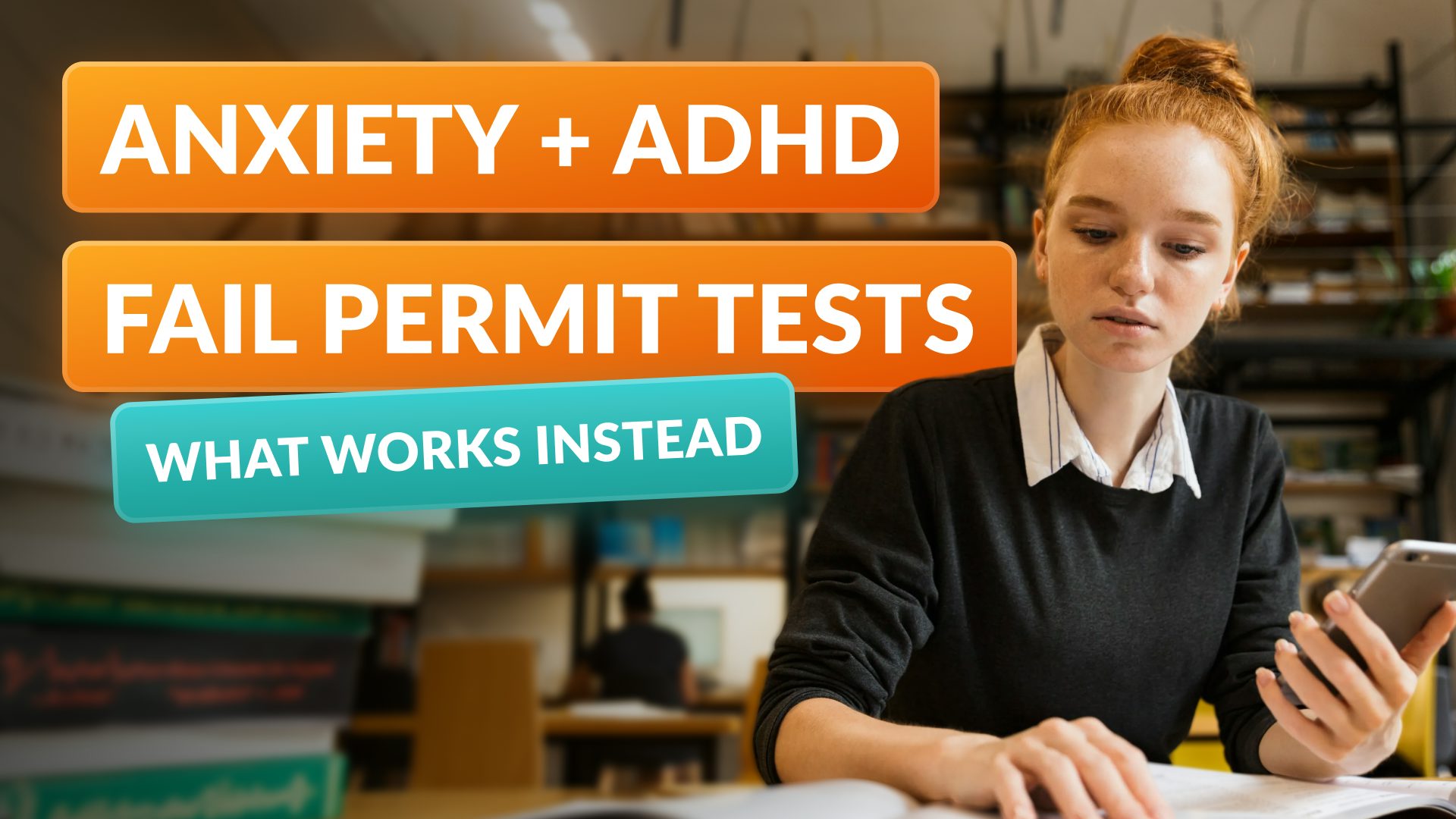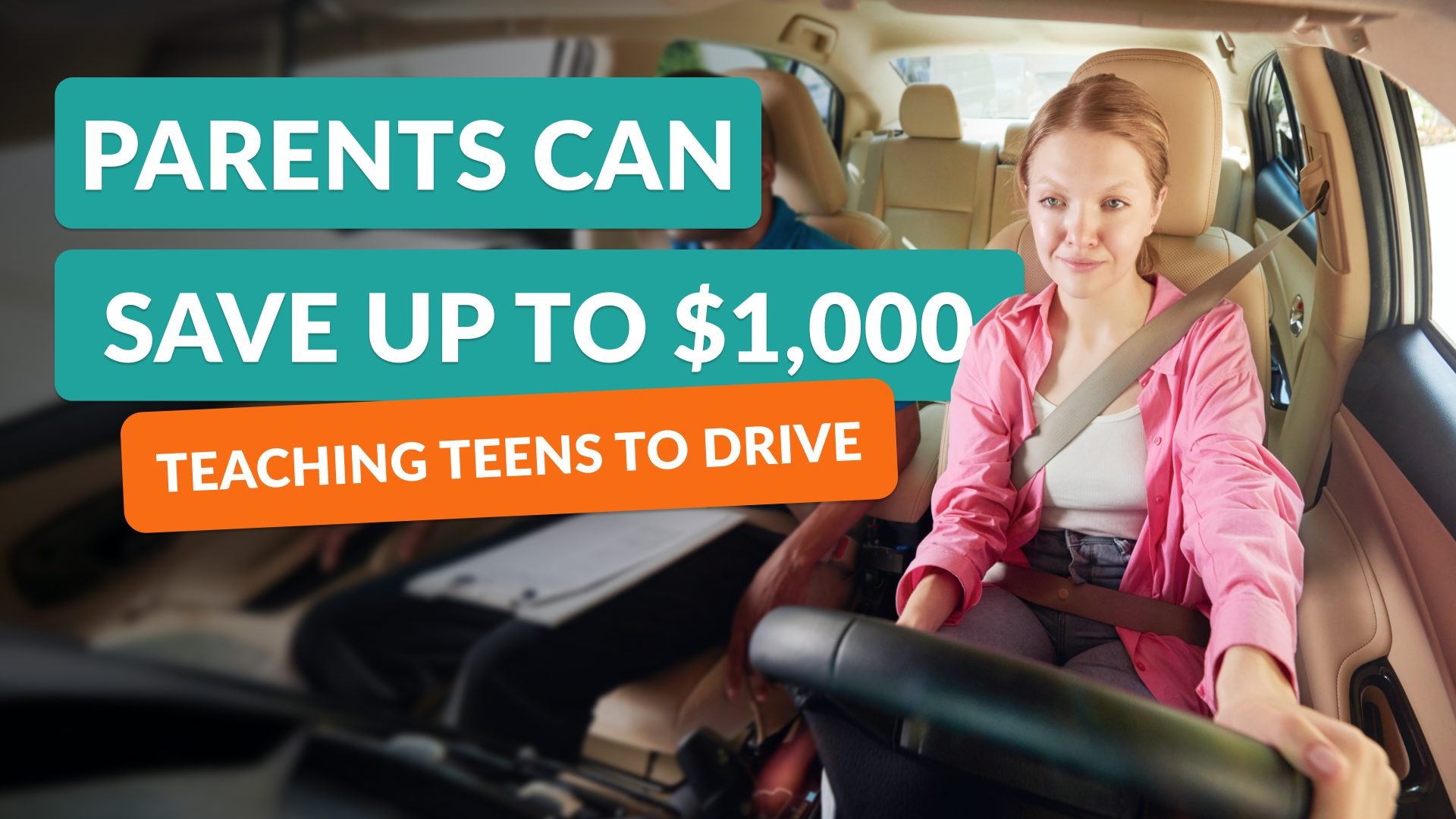
Parents vs. Driving Instructors: Who Should You Choose?
The day has finally arrived. You’ve studied diligently, passed the written knowledge exam at the department of motor vehicles, and now hold a learning permit. It’s time to actually get behind the wheel and learn how to drive. The next big question: Who will teach you?
In most cases, a parent or other trusted adult can also serve as an instructor. Some states require professional behind-the-wheel courses taught by trained driving instructors as part of their graduated program while others make this optional.
Although you may be concerned about driving with a stranger or practicing in an unfamiliar vehicle, doing some combination of parents and professional instructors may be the best option. Let’s go through the pros and cons of both options.
Parent as an Instructor
Your parents have taught you hundreds of things throughout your childhood, and in some circumstances, they make great driving teachers as well.
Parent Pros
- You can learn in a potentially more comfortable environment. You’ll be in a car you and your parents know well. You’re familiar with the roads you’re driving on, whether that’s your neighborhood or the route to school. You won’t have the stress of a stranger in the front seat.
- You’ll have more flexibility. Instead of only being able to drive at set times, you’ll be able to drive anytime your family goes anywhere. You’ll likely have opportunities to drive multiple times a day, allowing you to get more practice in.
- You can practice in between driver ed sessions. Even if you choose to sign up for behind-the-wheel, it’s a great idea to practice as much as possible. The more you practice, the more driving situations you’ll encounter and the better you’ll be at driving.
- Your family may save money. Driving instruction typically costs something, and it may not be worth it if it’s not required.

Parent Cons
- Your parents aren’t professional teachers. They have a lot of experience, but it’s been a long time since they’ve had any sort of driver training. They may have forgotten a good deal and might not be up-to-date on the latest information.
- You may pick up your parents’ bad habits. Your parents may not even realize they’re passing on bad driving habits. Parents who don’t make complete stops at stop signs probably don’t think it’s a big deal and won’t enforce it. This makes it easy for teen drivers to start neglecting the complete stop.
- You’ll need to be covered by your parents’ insurance. This may not be a problem, but it should definitely be taken into account. Parents are responsible for any accidents their children are involved in.
- It’s not as safe. Driver ed teachers use cars with dual controls, such as an extra brake the teacher can use in case of an emergency. Parents have far less control when their kids are at the wheel. Additionally, your parents’ vehicle may not have the most recent safety technology.
- There’s potential for arguments. It’s more likely that you’ll start arguing with people you know well – like your parents – than a driving instructor you’ve just met. Especially in high-stress driving situations, this may cause problems.

Professional Driving Instructor
Another option is signing up for drivers ed, behind-the-wheel, and/or other driving education programs.
Instructor Pros
- Instructors know what they’re doing. In many cases, instructors have spent years teaching teenage drivers like you and they’re extremely good at what they do. They’re kept up-to-date on new driving and safety information. They are able to detect problem areas for students and help them hone in on specific skills that may otherwise be overlooked.
- You’ll get to use a specially equipped vehicle. Typically, instructors use special vehicles with extra brakes and other safety features to provide the safest driving experience for students and instructors. Driving school vehicles are likely more modern in terms of basic driving technology as well.
- Instructors can offer more help regarding the road test. Instructors know just about everything you’ll be tested on during the road test, making them great people to ask if you have any questions. You may even be able to take the road test with your driving instructor as some driving schools offer testing services as well.
- Driving schools cover vehicle insurance. If you choose to learn with a professional driving instructor, you won’t have to worry about vehicle insurance.
- You may have access to online instruction. Many driving schools supplement behind-the-wheel learning with online instruction to help you in between sessions. Online driver’s ed like Zutobi is a great way to boost your confidence before you hit the road.

Instructor Cons
- There’s usually a price to pay for instructors. In some states, the government covers driver education costs, but usually you’ll have to pay a certain amount for driver education.
- Limited time and hours. Formal behind-the-wheel courses are usually limited to somewhere between five and 10 hours of instruction, which is not enough to master driving safely. However, it can be a place to collect professional instruction, which can then be practiced further with parents or other adults.

Making the Decision – Try a Bit of Both
Take all this information into account as you and your family prepare for driver education. There’s no right way to do it; some students learn better in the comfort of the family vehicle, others in a special safety-equipped driver ed vehicle.
If you are inclined towards mostly driving with a parent, we still recommend that you take a formal driving lesson every once in a while to make sure that you don’t miss out on important information.

Recommended articles
Ace your DMV test, guaranteed
Want to Be the Top School in Your Area?
- Simple & automated admin
- More time for teaching
- #1 learning materials for students


